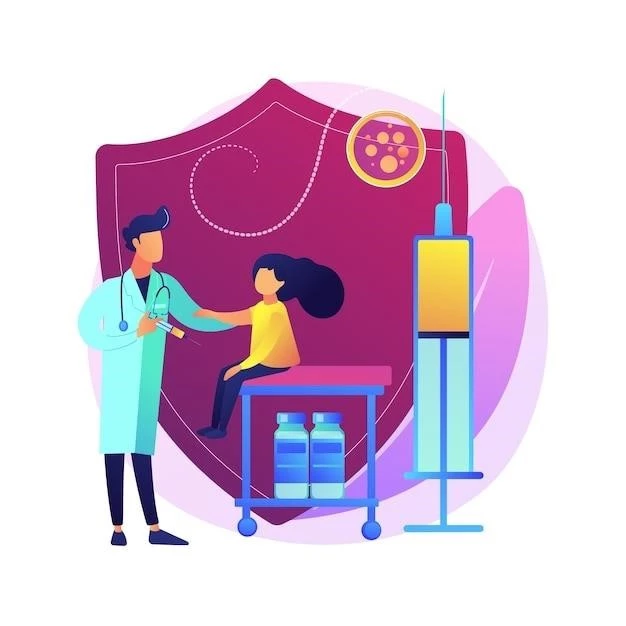Addressing Congenital Syphilis (Lúes Congénita)

Understanding Congenital syphilis is crucial in preventing its detrimental effects on newborns. Explore the risks and implications associated with Treponema pallidum infection and learn about the role of antibiotic treatment in managing the condition effectively.
Understanding Congenital Syphilis
Congenital syphilis, caused by the bacterium Treponema pallidum, is a serious condition that can result from untreated syphilis in pregnant individuals. It poses significant risks to the health and well-being of newborns, making it crucial for healthcare providers to raise awareness and educate about this condition.
Understanding the mechanisms of intrauterine transmission of syphilis is fundamental in recognizing the importance of early detection through pregnancy screening. Lack of adequate prenatal care and antibiotic treatment can lead to devastating outcomes such as spontaneous abortion, stillbirth, or severe neonatal complications.
Infant mortality rates related to congenital syphilis can be significantly reduced with timely diagnosis and appropriate antibiotic therapy. It is essential for pregnant individuals to undergo routine screenings for sexually transmitted infections, including syphilis, to prevent transmission to their unborn child.
By understanding the impact of congenital syphilis on newborns and recognizing the significance of early intervention, healthcare professionals and expectant parents can work together to ensure better outcomes for both the mother and the child. Education and awareness are vital in addressing this preventable yet serious health concern.
Risks and Implications
The risks and implications of congenital syphilis are profound, highlighting the critical need for early detection and treatment. Untreated syphilis during pregnancy can lead to the transmission of the bacterium Treponema pallidum to the fetus, resulting in a range of adverse outcomes.
Infants born with congenital syphilis may experience a variety of health issues, including bone deformities, severe anemia, neurological complications, and developmental delays. These consequences can have long-lasting effects on the child’s health and well-being if not addressed promptly.
Furthermore, the impact of congenital syphilis extends beyond the newborn, affecting families emotionally, financially, and socially. The burden of caring for a child with congenital syphilis can be overwhelming, underscoring the importance of preventing its occurrence through effective screening and treatment protocols.
It is crucial for healthcare providers to educate pregnant individuals about the risks associated with untreated syphilis and emphasize the significance of regular prenatal screenings. By identifying and treating syphilis early in pregnancy, the likelihood of adverse outcomes can be significantly reduced, ultimately safeguarding the health of both the mother and the baby.
Understanding the risks and implications of congenital syphilis underscores the need for comprehensive prenatal care and proactive management strategies. By addressing these challenges head-on, healthcare professionals can strive to minimize the impact of this preventable condition and promote better health outcomes for families worldwide.
Role of Antibiotic Treatment
The role of antibiotic treatment in managing congenital syphilis is paramount in preventing serious complications and improving outcomes for affected newborns. Antibiotics such as penicillin are highly effective in eradicating the bacterium Treponema pallidum and halting the progression of the disease.
Early initiation of antibiotic therapy is crucial to prevent the detrimental effects of congenital syphilis on the infant’s health. Healthcare providers must promptly diagnose the condition and administer appropriate antibiotic treatment to reduce the risk of long-term sequelae.
Antibiotic treatment not only targets the infection in newborns but also plays a vital role in preventing further transmission of syphilis to other individuals; By treating both the newborn and the mother, healthcare professionals can interrupt the cycle of infection and protect the broader community from the spread of the disease.
It is essential for healthcare providers to follow established treatment guidelines and ensure that the antibiotic regimen is administered correctly and for the appropriate duration. Monitoring the infant’s response to treatment and conducting follow-up assessments are essential components of managing congenital syphilis effectively.
Understanding the significance of antibiotic treatment in addressing congenital syphilis underscores the importance of timely intervention and comprehensive care. By prioritizing the administration of antibiotics in infants born with syphilis and offering appropriate treatment to infected pregnant individuals, healthcare professionals can contribute to better health outcomes and reduce the burden of this preventable disease.
Pregnancy Screening for Syphilis
Pregnancy screening for syphilis is a crucial component of prenatal care to prevent the transmission of this infection to newborns. Routine screening for syphilis during pregnancy enables healthcare providers to detect the presence of the bacterium Treponema pallidum early on and initiate timely interventions to safeguard the health of both the mother and the baby.
Healthcare professionals recommend that all pregnant individuals undergo syphilis screening at their first prenatal visit as part of standard care protocols. Additionally, repeat screenings in the third trimester and at delivery are essential, especially for individuals at higher risk of syphilis infection;
Early detection of syphilis through routine screening allows for prompt treatment with antibiotics, reducing the risk of adverse outcomes associated with congenital syphilis. By ensuring that pregnant individuals receive timely screenings and appropriate treatment, healthcare providers can effectively prevent the transmission of syphilis from mother to child.
Education and awareness campaigns play a vital role in promoting the importance of pregnancy screening for syphilis among both healthcare providers and expectant mothers. By emphasizing the benefits of early detection and treatment, these initiatives aim to improve prenatal care and reduce the incidence of congenital syphilis.
By prioritizing pregnancy screening for syphilis and integrating it into routine prenatal care practices, healthcare providers can significantly impact the prevention and management of congenital syphilis. Encouraging pregnant individuals to undergo screening and facilitating access to testing services are key steps in addressing this preventable yet serious health concern.
Preventing Transmission of Sexually Transmitted Infections
Preventing the transmission of sexually transmitted infections, including syphilis, is key to reducing the incidence of congenital syphilis and safeguarding the health of newborns. Education and awareness about safe sex practices, regular testing, and early treatment are essential components of preventing the spread of these infections.
Encouraging individuals to practice safe sex, such as using condoms consistently and correctly, can significantly reduce the risk of acquiring syphilis and other sexually transmitted infections. Open communication with partners about sexual health and history is crucial in promoting transparency and facilitating informed decision-making regarding testing and treatment.
Regular testing for sexually transmitted infections, including syphilis, is important for early detection and prompt treatment. Healthcare providers play a critical role in offering testing services, counseling on risk reduction strategies, and ensuring access to necessary treatments to prevent the transmission of these infections.
Addressing stigma and misconceptions surrounding sexually transmitted infections is essential in creating a supportive environment for individuals to seek testing and treatment without fear of judgment. By promoting a culture of understanding and acceptance, healthcare providers can encourage more people to prioritize their sexual health and well-being.
Community outreach programs, educational campaigns, and accessible healthcare services can all contribute to increasing awareness about preventing the transmission of sexually transmitted infections. By empowering individuals to take control of their sexual health and promoting proactive measures, we can work towards reducing the incidence of congenital syphilis and improving overall public health outcomes.
Complications and Outcomes
Complications arising from congenital syphilis can have serious implications for newborns, underscoring the importance of early intervention and comprehensive care. Untreated syphilis during pregnancy can lead to a range of adverse outcomes, including low birth weight, prematurity, and the development of life-threatening conditions in infants.
Severe cases of congenital syphilis may result in neurological complications, such as meningitis, seizures, and developmental delays, impacting the long-term health and well-being of affected children. Additionally, bone deformities, skin lesions, and organ damage are among the potential consequences of untreated syphilis in newborns.
Without timely diagnosis and appropriate treatment, congenital syphilis can lead to stillbirth, neonatal death, or long-term health challenges for the infant. The impact of these complications extends beyond physical health, affecting emotional and social well-being for both the child and the family.
Healthcare providers must be vigilant in recognizing the signs and symptoms of congenital syphilis to facilitate early diagnosis and intervention. By promptly initiating antibiotic treatment and closely monitoring the infant’s health, healthcare teams can mitigate the risks of severe complications and improve outcomes for those affected.
Educating pregnant individuals about the potential complications of untreated syphilis and the importance of prenatal screenings is essential in preventing adverse outcomes for newborns. By raising awareness about congenital syphilis and its implications, healthcare providers can empower families to prioritize early detection and appropriate management strategies for a healthier future.
Newborn Screening and Follow-up
Newborn screening for congenital syphilis is a critical component of postnatal care to identify infants at risk of infection and ensure timely intervention. Healthcare providers conduct comprehensive assessments to detect any signs or symptoms of syphilis in newborns and initiate appropriate follow-up measures.
Following a positive screening result, infants may undergo further diagnostic tests, such as serological evaluations and physical examinations, to confirm the presence of congenital syphilis. It is imperative that healthcare teams closely monitor these infants to assess their response to treatment and address any potential complications promptly.
Regular follow-up appointments are essential for infants diagnosed with congenital syphilis to track their progress and adjust treatment plans as needed. Healthcare providers work collaboratively with families to provide ongoing support, guidance, and medical care to optimize the infant’s health outcomes.
Educating caregivers about the importance of adherence to treatment regimens, monitoring for signs of infection, and seeking medical attention for any concerning symptoms is crucial in managing congenital syphilis effectively. By empowering families with knowledge and resources, healthcare teams can promote the well-being of the infant and facilitate a smooth recovery process.
Newborn screening and follow-up play a vital role in ensuring the early detection and management of congenital syphilis. By implementing comprehensive screening protocols, conducting thorough evaluations, and offering continuous support to affected infants and their families, healthcare providers can contribute to improved outcomes and a healthier start for these vulnerable newborns.
and Recommendations
In conclusion, addressing congenital syphilis is essential to mitigate its impact on newborns and improve overall maternal and child health outcomes. Early detection through pregnancy screening, timely antibiotic treatment, and proactive management of complications are key strategies in combating this preventable condition.
Healthcare providers are encouraged to prioritize education and awareness campaigns to inform pregnant individuals about the risks of untreated syphilis and the importance of routine screenings. By promoting a culture of regular testing and early intervention, healthcare professionals can work towards reducing the incidence of congenital syphilis.
Recommendations for healthcare systems include implementing standardized protocols for syphilis screening during prenatal care visits, ensuring access to quality treatment services, and providing comprehensive follow-up care for affected infants. Collaboration between healthcare providers, policymakers, and community stakeholders is crucial in creating a supportive environment for prevention and management efforts.
Furthermore, fostering open communication and destigmatizing sexually transmitted infections can encourage individuals to seek testing, treatment, and support services without fear of judgment. By promoting a non-judgmental and inclusive approach to sexual health, healthcare providers can empower individuals to prioritize their well-being and that of their children.
In summary, the effective prevention and management of congenital syphilis require a multi-faceted approach encompassing early detection, timely treatment, ongoing support, and community engagement. By advocating for comprehensive care practices and promoting awareness at all levels, we can strive towards a future where congenital syphilis is a rare occurrence with positive health outcomes for both infants and families.
